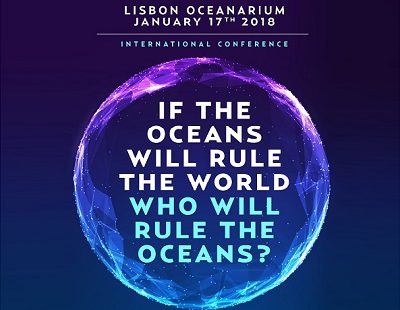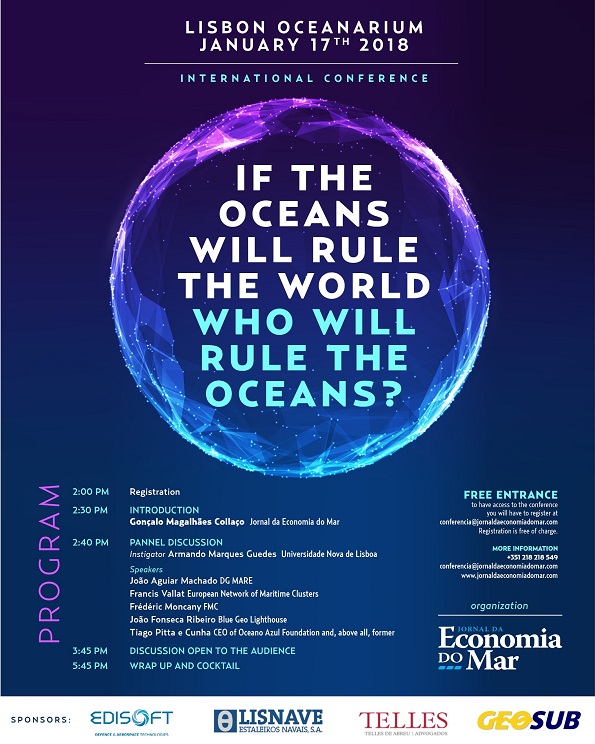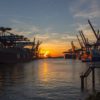This is how things are.
In the first instance, one can say that the European Union and Commission, although emanating from the member states, identifies itself with certain of their policies and geo-strategies, but not all.
In fact, as the European Union and Commission have become institutionalized, and have deepened this institutionalization, they have tended to distance themselves from any immediate identification with any policies that are specifically national, even when there is direct or greater influence on one in relation to the others.
In relation to the sea and the oceans, about which we are here, in this precise moment in the growing territorializatiuon of the sea and the oceans, it is important to view and think for the good of all, i.e. of the project for the European Union, how this relationship between the European Union and Commission and the respective Member States which may be to say, in this case, between the European Union, the European Commission and the respective national maritime clusters.
In this respect, there are numerous questions that may be raised and debated, for example that of knowing if the policies and strategies that are formulated, determined and followed by the EU and the respective European Commission are those that are understood as being the most appropriate by the Member States and their respective maritime clusters. Therefore, looking at the European Union, it is obvious that, even by its configuration, that it clearly has a vision that is more Continental than Maritime, evidenced, for example, by the comparison between the financing attributed to the Common Agricultural Policy and to everything that may be, one way or another, attributed to the sea and the oceans.
In this more Continental vision, if it may be described as such, it is important to understand whether it makes sense, in relation to matters concerning the sea and the oceans, to maintain the same institutional weight of the Member States, essentially based on the size of the population, or if it would make more sense to consider the maritime significance – which is to say, in accordance with the dimensions of the respective maritime areas under national jurisdiction.
Similarly, the concept of subsidiarity in such matters should also be looked at again, possibly under new terms.
In this same framework, the role to be carried out by the national maritime clusters may be revisited as they represent, by definition, the most complete vision of what needs to be done and everything that can be done in terms of Europe, for each of the areas and sectors of the maritime economy, without which there can be no strategy of any worth, for the ports, maritime transport, leisure and cruise ships, fisheries, aquaculture, biotechnology, marine renewable energy, defence and security, communications, the environment, natural resources and much more.
In summary, at a moment when the overall strategy of the greatest and most powerful nations of the world are inevitably centering on the sea and the oceans, the same cannot be said of the European Union, the greatest maritime continent of all. The question is no longer is if, but how will the policies and strategies of the European Union and Commission be articulated and, eventually, integrated with national policies and strategies – where the respective maritime clusters must continue to be involved.
This is the importance of the Conference of the Jornal da Economia do Mar, “If the Oceans rule the World, who will rule the Oceans?” which will take place on 17 January 2018 in the Auditorium of the Lisbon Oceanarium, possibly the first and most decisive moment for a new perspective on the formulation and development of maritime policy and strategy of the European Union.
As always, entrance is free, but subject to an obligatory registration:
conferencia@jornaldaeconomiadomar.com
Acceptance of the registration will, naturally, be subject to the capacity of the Auditorium, with priority given to the supporters of newspaper and by the order of registration.
- Só a criaçãode um Escol pode dar Vida Nova a Portugal
- Portugal: Visão Estratégica vs Cabos Submarinos
- Portugal como nó Crucial de Amarração de Cabos Submarinos
- Portugal e a (In)Segurança Energética no Golfo da Guiné
- Mar: Governo não tem conhecimento para tomar as melhores decisões
- O Mar, o gás e as inesperadas harmonias no Mediterrâneo Oriental
- Cooperação e Defesa na CPLP
- O afastamento do Reino Unido de África













